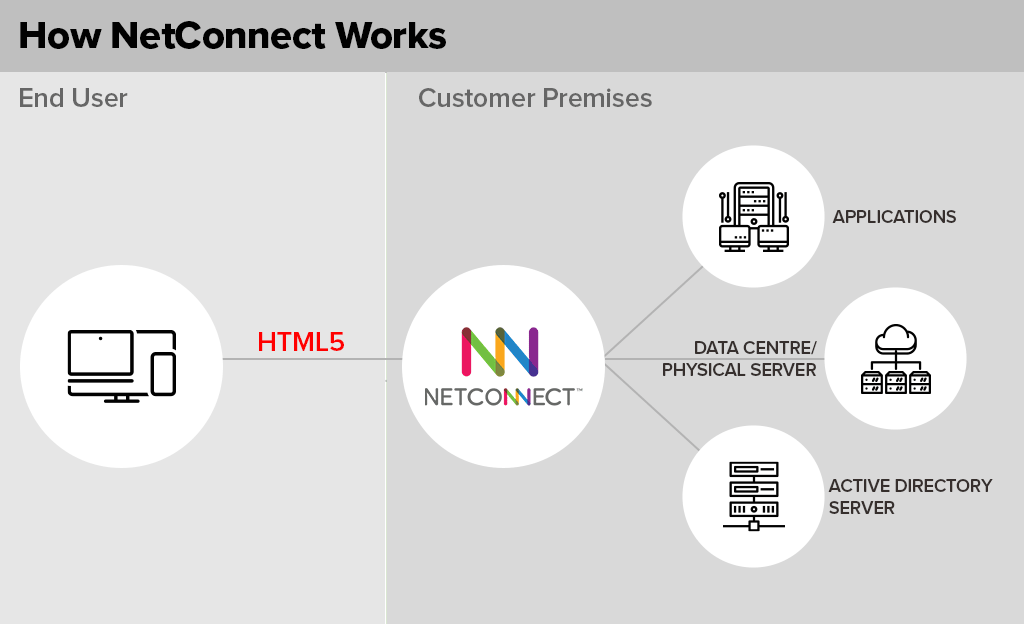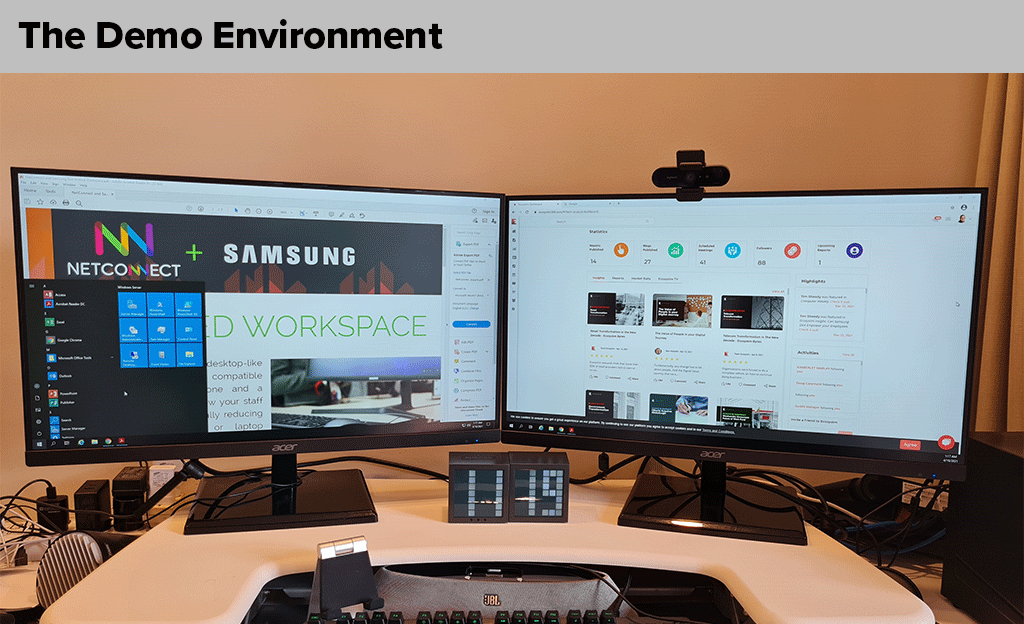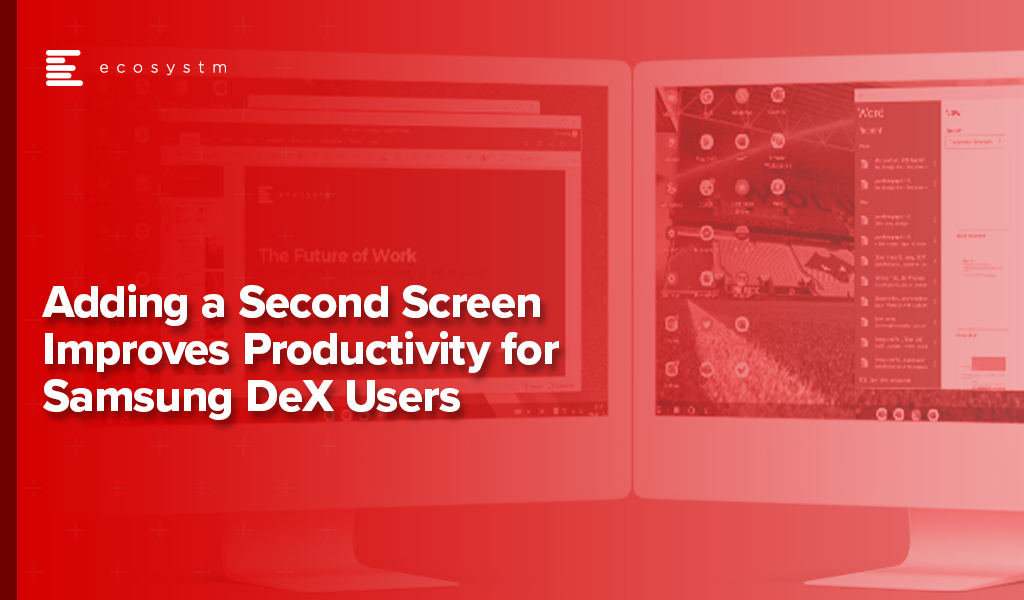In March I published an analysis of Samsung DeX – which is a desktop environment which many businesses could benefit from deploying to specific teams, roles or employees. During my research, I found that one of the shortcomings is the lack of native support for dual screens. I know that many information workers in particular use dual-screen setups – and going back to a single screen feels highly unproductive!
Knowing this, a contact at Samsung pointed me to a company that has developed a dual-screen capability for a virtual desktop environment running on DeX – so I jumped at the opportunity to trial the environment in my own dual screen setup.
The product is called NetConnect – and is sold by VOIP. It is actually a Branch Of One style solution, which allows employees to access enterprise resources on any device. But one of its unique features is the ability to run a dual screen virtual desktop environment.
NetConnect’s Dual Screen Capabilities – An Analysis
DeX users that run the NetConnect app can extend the desktop to a second, internet connected monitor or screen. The key point here is “internet connected” – the screen is deployed across the internet – not across cables from the phone. This means any tablet, laptop or connected screen can be used as the second screen for the Windows virtual desktop running through NetConnect. In my particular demo environment, the software (both NetConnect and the Windows server) was running in a data centre in Singapore – but the company (VOIP) sells the solution to organisations to run in their own data centre environment.

The overall experience is seamless. The fact that one screen is running on a server in Singapore and being sent across the internet to my Samsung phone, and the other screen is running in Singapore and being sent across the internet to a completely different device is remarkable. The mouse moves across screens as if the desktop is running locally. While my demo environment was limited to web and a few desktop applications, I often found myself astonished that this entire environment was being driven by a smartphone (and a lot of clever technology behind the scenes!). Suddenly the limitations of only having a single screen for DeX disappeared – I now could run one application on my first screen and another on my second screen – and continue working, without the need to endlessly alt-tab between applications and screens.

There are some limitations – video streaming is not very smooth, and connected devices (cameras etc. for Zoom or Teams calls) are not recognised. These features are on the roadmap, but not available today. But the NetConnect solution really does open DeX up to a whole new community of users. Some of the VOIP employees I met at their office don’t have a laptop on their desk or a desktop underneath it – they are running their entire work environment from their Samsung phone!
And being a Branch of One solution, NetConnect also brings with it inherent security benefits – of not ever taking company data out of the data centre, reducing threats from viruses and malware that would normally run on the end-user computing device and others. It also improves the manageability of the desktop environment and makes it simple to deploy to users. Branch of One is about bringing all of the inherent benefits and capabilities that an office or branch would have and enabling a single user to get this power and security.
NetConnect is more than a dual screen solution – so working out which comes first is the interesting challenge. If your business is looking to run a solution like NetConnect, it is worth your while examining the opportunity to use DeX to extend full, dual screen desktop solutions to your employees. And if you are a business running DeX, NetConnect could open opportunities to extend DeX to more employees, roles or teams than originally planned.
Checkout Tim’s previous insight where he provides a detailed analysis on whether Samsung DeX is suitable for your employees. He bases his insights from using Samsung DeX as his primary desktop environment over the past 4 weeks.



